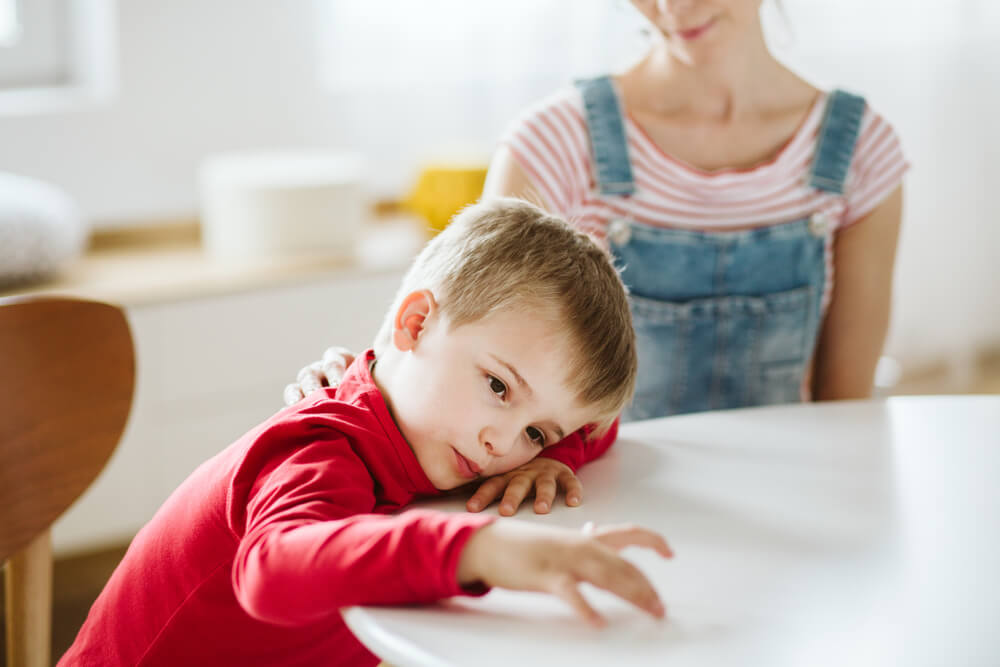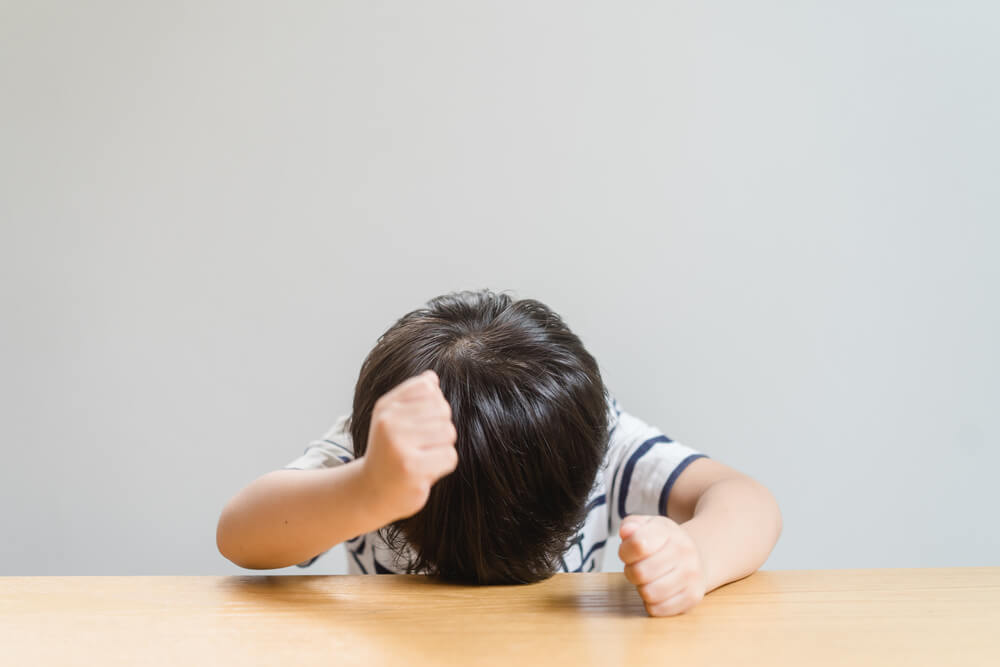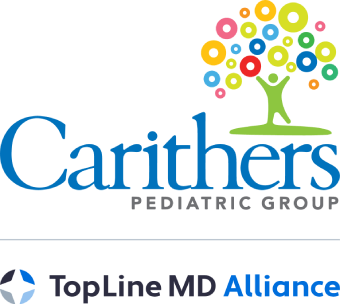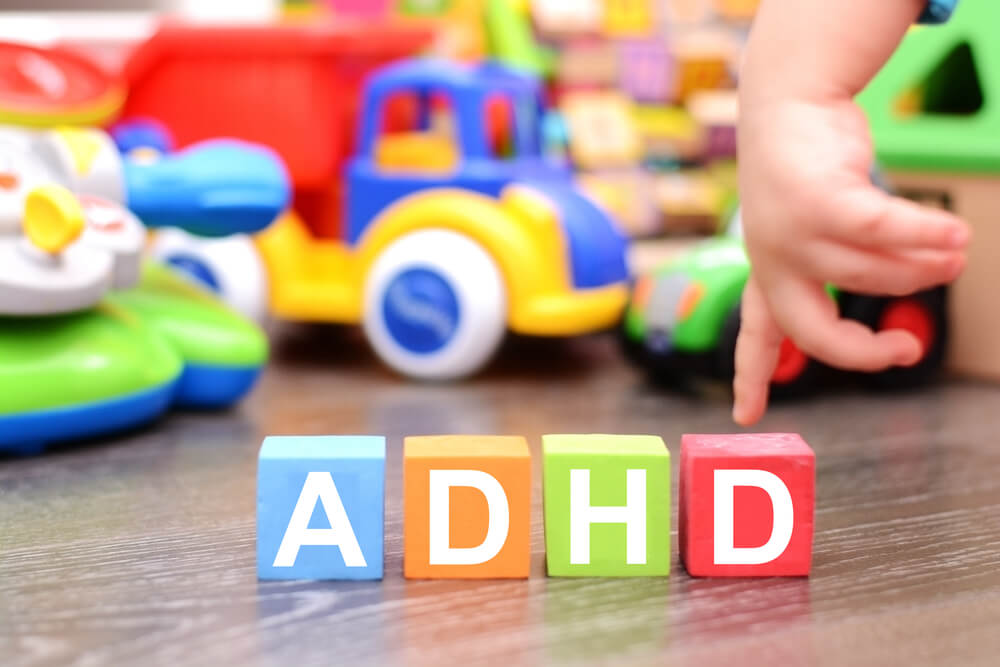Parenting is not for the faint of heart, regardless of your child’s behavior. Raising a child with ADHD has its own set of challenges, and parenting an inattentive and/or hyperactive child can often be overwhelming and frustrating.
We at Carithers Pediatric Group understand that parents want effective ADHD treatments for their kids. While all practices strive to provide just that, parents should also remember that they play a significant role in helping their children cope with the stressors of everyday life. This article contains a few useful ADHD parenting tips to help parents get a head start on these daily challenges.
ADHD Parent Guide: Understanding ADHD

Children with this condition usually have problems with executive functioning, meaning they may face difficulties completing tasks, organizing their lives, controlling their impulses, and planning ahead. This often means that parents have to be heavily involved in helping their children acquire these skills gradually on their own, in an age-appropriate manner.
So, how to parent a child with ADHD? First, you need to remember that they aren’t trying to embarrass, annoy, or ignore you on purpose. For example, they really do want to be able to sit quietly; they really want to be focused enough to clean up their rooms – they just don’t know how to execute these tasks.
To better understand how you can help your child with ADHD, it helps to be consistent and compassionate. This means that your child should live in a home that equally provides structure and love while helping them learn to manage the challenges their condition might bring.
ADHD Parenting Tips
Stay Healthy and Positive Yourself
Parents play a crucial role in their children’s physical and emotional health. Modeling patience and self-compassion, demonstrating organizational methods that work, and prioritizing healthy habits such as exercise, good nutrition, and enough sleep go a long way. Your child is constantly watching you. They sense approval and disapproval. If you can stay calm and relaxed, chances are they will learn to do so, too.
Also, remember that you don’t need to do things on your own. You can always contact outside support and talk with friends going through the same things, therapists, doctors, and teachers. There are several online support groups for parents, enabling you to share experiences, learn more, and vent your feelings when needed.
Introduce Structure
To support children with ADHD, establishing structure is essential to keeping them organized and focused. This involves creating predictable routines and environments. Here are some essential tips:
- Create a Routine: Establish a consistent schedule for daily activities like meals, homework, play, and bedtime. Ensure your child lays out clothes and prepares school items the night before.
- Timers and Clocks are Your Friends: Place clocks around the house, including your child’s room, to help them manage time. Timers can be used for tasks like homework or transitioning between activities.
- Stick to Simple Schedules: Avoid overloading your child with numerous after-school activities. Adjust commitments based on their abilities and the demands of specific tasks.
- Have a Quiet Space at the Ready: Designate a quiet and private area for your child, like a bedroom or porch. This space should be separate from where they go for time-outs.
- Stay Organized Yourself: Lead by example in maintaining a well-organized home where everything has its proper place.
- Keep The Children Busy: Idle time can worsen ADHD symptoms, so involve your child in constructive activities like sports, art classes, or simple tasks at home if these additional extra-curricular activities don’t cause extra stress. Avoid reliance on TV and video games, which may exacerbate symptoms.
By implementing these strategies, you can provide a better sense of structure for a child with ADHD, helping them manage their daily routines more effectively.
Focus on Sleep and Physical Activity
Children with ADHD often possess abundant energy, and engaging in organized sports and physical activities can be beneficial. These activities allow them to channel their zeal in healthy ways while focusing on specific movements and skills. The advantages of physical activity are numerous, including enhanced concentration, reduced depression and anxiety, and it also promotes healthy brain development.
Exercise also helps to improve another important factor in children with ADHD: it improves sleep quality, which can, in turn, actually alleviate many ADHD symptoms.
That said, selecting a sport that aligns with your child’s interests and strengths is essential. For instance, sports with frequent breaks, like baseball or softball, may not be the best fit for children with attention issues. Instead, consider individual or team sports like karate, gymnastics, basketball, and hockey, which demand continuous movement.
Additionally, spending time in natural settings, often referred to as “green time,” has been shown to benefit children with ADHD. Research indicates that playing in grassy, tree-filled parks can significantly reduce associated symptoms. Even in urban areas, most families have access to parks and natural environments, making it a simple and effective strategy for managing ADHD.
Set Clear Rules and Expectations
Most ADHD parenting tips will also stress that children need rules they can understand and follow consistently. The best thing you can do is make the rules clear, write them down, and hang them somewhere your child can clearly see and read them.
On that note, organized systems of consequences and rewards are something most children with ADHD respond to quite well.
The system of rewards and consequences is a behavioral management approach used to encourage desired behavior and discourage unwanted behavior. It operates on the principle that individuals, whether children or adults, are more likely to repeat behaviors that result in positive outcomes (rewards) and less likely to repeat behaviors that result in adverse effects (consequences).
Be There for Your Child

Apart from these tips, you should also focus on helping your child maintain a healthy diet. While ADHD isn’t diet-related, eating healthy foods may help relieve some of its symptoms. It may diminish the negative impacts of distractedness and impulsiveness that may be more exacerbated by overeating, missed meals, and disordered eating.
Lastly, put in the effort to help your child make friends. The nuances of social interactions are often troublesome for children with ADHD, as other children may see them as intense or aggressive. Helping your children hone their social skills will help them learn to be better and more attentive communicators and listeners, thus helping them develop more meaningful connections with peers.
If You Are Looking for Expert Help
We understand that an ADHD diagnosis may seem overwhelming at first. With perseverance and patience, you can help your child function better in both academic environments and everyday social situations.
Should you desire extra assistance negotiating parenting an ADHD child, please feel free to schedule an appointment with our experts. We are here and ready to help you AND your child overcome these everyday challenges!



